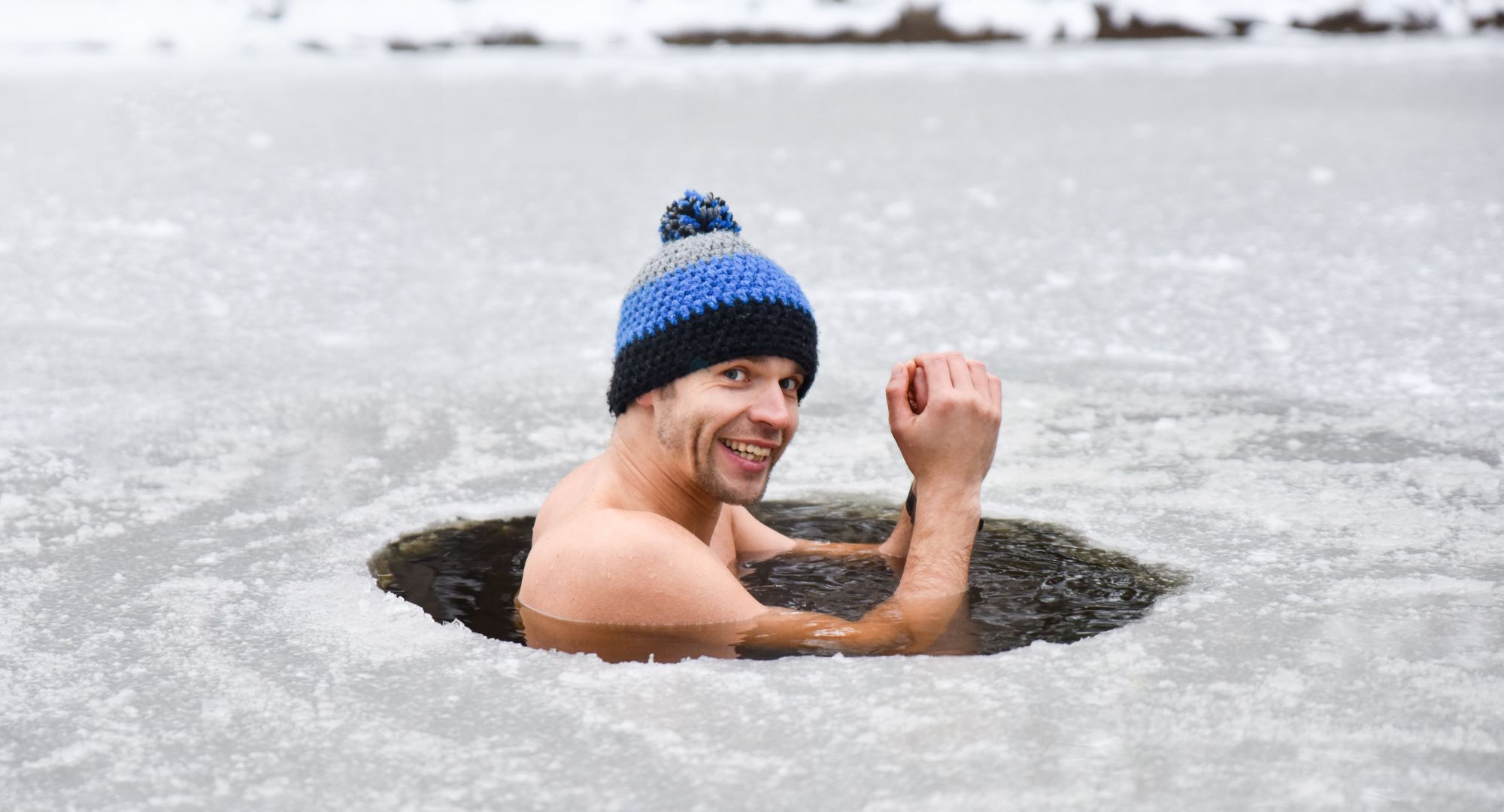
Ice baths have become somewhat of a fad amongst athletes and fitness enthusiasts, but recent research suggests that hopping into a tub full of ice-cold water may have mood-boosting benefits.
According to Rachel Lee, M.Ed, NASM-CPT, PN-1, and GGS, ice baths can stimulate the release of endorphins and other neurotransmitters in the brain associated with improved mood. Lee is an ambassador to Edge Theory Labs and the founder of Ice Bath Boston, which focuses on holistic well-being practices, including ice bath therapy.
In this article, we’ll explain how the occasional cold plunge could improve your mental health and list other benefits of ice bath therapy.

What is an ice bath?
An ice bath is a therapeutic practice (a form of cryotherapy) where a person immerses themselves in ice-cold water (50-59°F) for anywhere from a few minutes to 15 minutes, depending on their tolerance, whether they’ve done it before, etc.
People usually do this after intense physical exercise or to aid in recovery from muscle soreness and inflammation.
“The first time you cold plunge, it’s truly shocking, but the mood-improving magic happens when you learn how to breathe through the shock response until your heart rate settles down,” says Lee.
It’s important to consult with a healthcare professional or certified instructor before attempting an ice bath, as it can be physically and mentally demanding. This is particularly true for people who have pre-existing medical conditions (e.g., asthma, diabetes, heart disease), physical injuries, weakness, skin conditions, open wounds, pregnancy, or postpartum or post-surgery status.
“It’s far easier to start cold plunging by seeking an expert, starting with a cold shower, or using a temperature-controlled tub since you can specify the exact temperature you want and gradually adapt,” Lee adds.

Here’s what the science says
Ice baths aren’t new; several studies have shown they can boost mood and reduce symptoms of depression and anxiety.
Cold exposure works by activating the sympathetic nervous system and triggering the release of beta-endorphins, dopamine, and noradrenaline. Beta-endorphins are neuropeptides that relieve pain and boost mood. They’re said to have a stronger effect on the body than morphine.
Research shows that just a single instance of cold water immersion can skyrocket dopamine levels by 250% and noradrenaline levels by 530%.
Dopamine is a neurotransmitter often referred to as the “reward chemical.” It plays a central role in the brain’s motivation, anticipation, and learning centers. A surge in dopamine levels can lead to feelings of euphoria and pleasure.
Noradrenaline, also known as norepinephrine, regulates the body’s “fight or flight” stress response. Surges can lead to euphoria, alertness, and general well-being.
These neurotransmitters are crucial for mood, attention, and our body’s response to stress.
“Cold plunging is the most effective means of cold exposure because water transfers heat from the body at a rate 40 times faster than air, so you get more benefits at even moderate temperatures,” says Lee. But you don’t need to spend a fortune on a cold plunge tub to reap the benefits of cold exposure.
“Even daily 2-3 minute cold showers over several weeks to a month can significantly relieve depressive symptoms,” adds Lee.
Other cold plunge benefits
Taking ice baths or engaging in cold water immersion therapy can also have other benefits.
Potential cold plunge benefits include:
- Reduction in inflammation in sore muscles
- Improved athletic recovery and performance
- Improved immune function
“In a world where depression is predicted to be the third-largest burden of global disease by 2030, improving mental health is an immediate priority,” says Lee. “Cold plunging has a tremendous and positive impact on this growing problem and is definitely something that everyone should try.”



